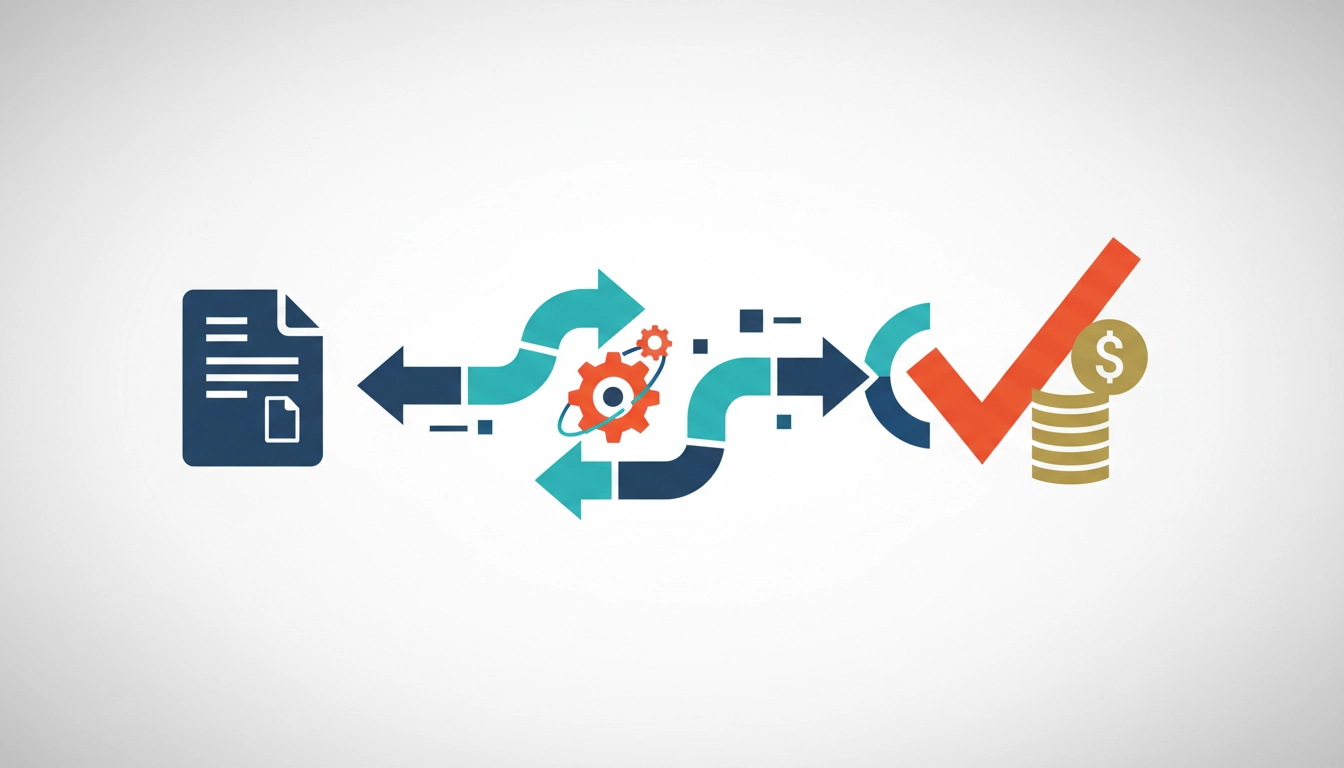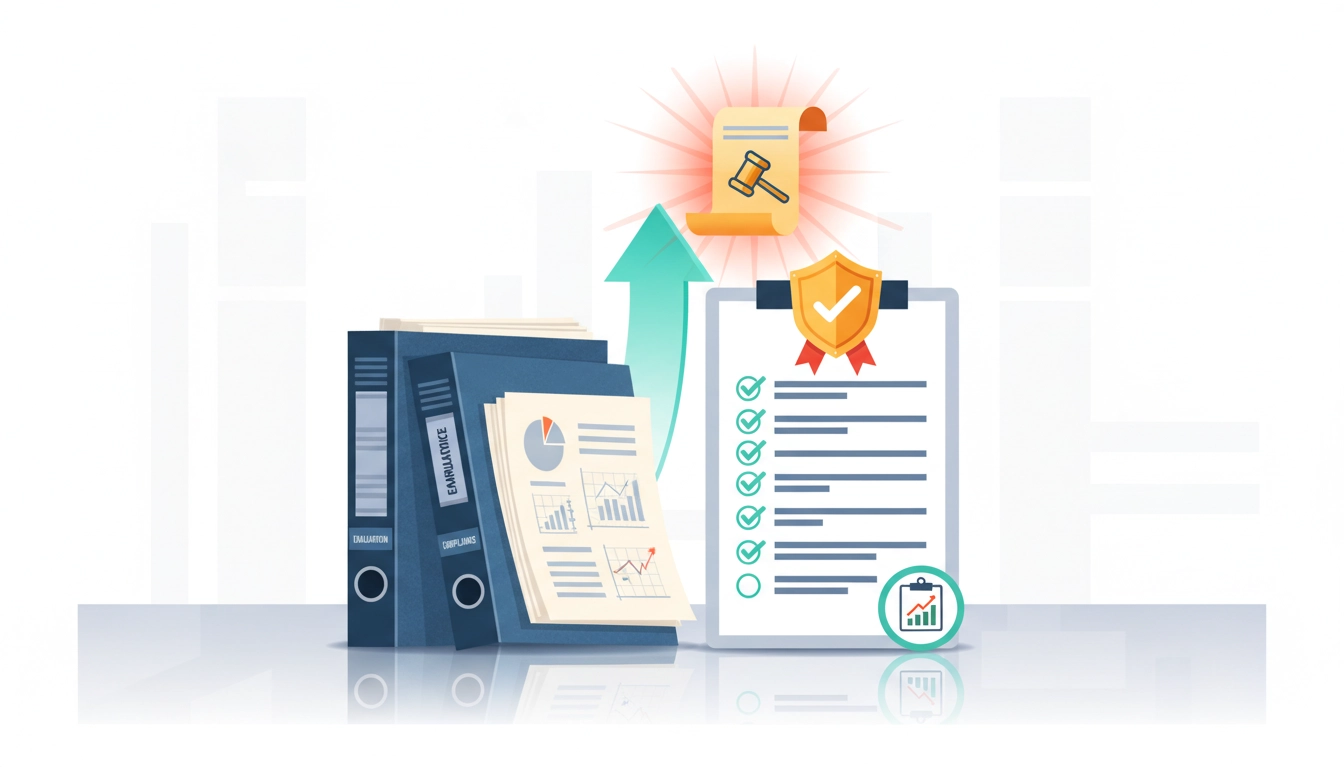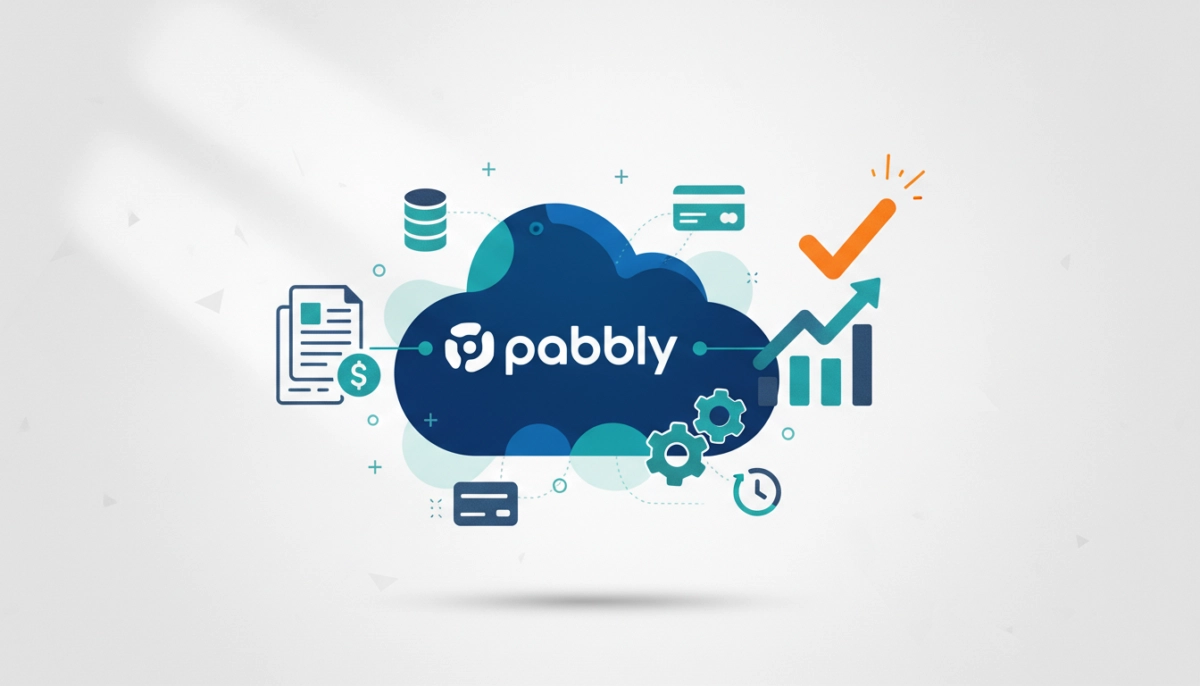10 Best Accounting Software in the South Africa (2025)
Why small businesses in South Africa need accounting software
Who this guide is for: small businesses in South Africa
If you’re a small business owner, freelancer, or agency owner focused on growth in South Africa, this guide is for you. It’s designed to help small businesses choose an accounting software solution that fits the way you work, supports compliance, and streamlines day‑to‑day business operations.
What accounting software is (and how it helps small businesses)
Think of an accounting system as a centralized command center for your finances. Modern cloud accounting and online accounting software automate the accounting process—from invoicing and expense tracking to reconciliation and reporting. Automated bank feeds pull transactions from your business account, while smart categorization reduces manual entry. The right accounting program helps small teams spot trends, control cash flow, and reduce errors with audit-ready reports.
- Faster invoicing and payments with online options
- Automated bank feeds to eliminate manual capture
- Better reporting for profit, tax, and compliance
- Fewer errors thanks to built-in checks and workflows
For a deeper dive into spending discipline, see The ultimate guide to expense tracking for small businesses.
Why this is the year to modernize your accounting process
With changing regulations, rising costs, and remote-friendly teams, cloud accounting software is now essential for small businesses in South Africa. Selecting accounting software designed to simplify bookkeeping gives a business management solution that scales with you. If you’re still on spreadsheets, it’s time to adopt a software solution that’s designed to help you stay compliant and cash‑flow positive—here’s why you should consider the switch: Why you should switch from spreadsheets to professional invoicing software.
This guide covers top online accounting software options for South Africa and how to pick a platform that grows with your business.
How to evaluate the best accounting software for your business
Core features to prioritize: compliance, invoicing, and reporting
When assessing the best accounting software, start with the essentials that give a full picture of your business:
- VAT and tax compliance: SA VAT rates, returns, and audit trails
- Online invoicing software: quotes, invoices, recurring billing, and reminders (Create invoice)
- Expense tracking: receipt capture and categories (Track expenses)
- Reporting and analytics: real-time dashboards, P&L, balance sheet (Generate reports, P&L statement)
- Bank feeds: automated imports and reconciliation
- Inventory and time tracking: especially for retail and professional services
- Payroll integrations: connect to trusted payroll partners
- Mobile apps: on-the-go invoicing and approvals
Automation that saves time: how accounting software automates tasks
The right accounting tools and workflows ensure business finances are always current. Accounting software automates bank rules, recurring invoices, late fees, and multi-currency conversions. This gives your business up-to-date financial data and reduces the costs of accounting by limiting rework.
Scalability and integrations: choosing software that grows with your business
As you compare software options and start selecting accounting software, check that it integrates with CRM, payments, e‑commerce, and reporting tools. Security, user roles, and audit logs are non-negotiable. Ensure the software can add users, handle higher transaction volumes, and support more complex accounting tasks as it grows with your business.
Quick checklist to ensure the software fits your business needs
- VAT-ready and compliant in South Africa
- Automated bank feeds and reconciliation rules
- Powerful invoicing, expense tracking, and reporting
- Role-based access, audit trails, and backups
- Open integrations and reliable support
- Transparent pricing that lowers total costs of accounting
The 10 best accounting software: top accounting software options
1) Invoice Crowd — Modern invoicing and business accounting software for small businesses
What it is: A cloud accounting software and online invoicing software platform that connects proposals, estimates, subscriptions, invoicing, and accounting into one flow. It includes expense tracking, P&L, and clear reporting—ideal business accounting software for streamlined bookkeeping and accounting.
Best for: Freelancers and small agencies that want a proposals‑to‑payment workflow without extra complexity.
Standout features:
- Proposal Builder: draft and send proposals with e‑sign
- Create Invoice and Estimate to Invoice: create invoices and convert estimates to invoices
- Recurring invoices & subscriptions: automate billing for retainers
- Packages and optional items for quotes: list services and offer add‑ons
- Payments and collections: payment gateways, split/partial payments, and late fees
- Client experience: customer portal and customer management
- Accounting and insights: accounting, expense tracking, reports
- Workflow connectivity: Zapier and Pabbly integrations
Why it fits businesses in South Africa: Fast invoicing, Integrates with Payfast, clear reporting, compliance‑ready workflows, and flexible payment options make it an effective accounting software solution for local teams.
Use case: A two‑person creative studio automates recurring retainers and accepts partial payments, cutting time-to-payment while keeping bookkeeping tidy for VAT returns. Learn more about outcomes in How invoicing software can help boost your business and Best practices that utilize your invoice management system.
2) Sage Business Cloud Accounting (Sage Accounting)
- Overview: A local favorite with robust VAT support and intuitive workflows.
- Key strengths: Bank feeds, quotes, invoicing, inventory add‑ons, and solid reporting.
- Ideal for: Small businesses prioritizing local compliance and support.
3) QuickBooks Online
- Overview: A widely popular accounting software with an extensive app marketplace.
- Key strengths: Invoicing, bank reconciliation, inventory (on higher tiers), and strong reporting.
- Ideal for: Small to mid-sized businesses needing flexible integrations and payroll via partners; also fits teams standardizing on quickbooks across regions.
4) Xero Accounting Software
- Overview: Xero accounting & billing software allows easy bank feeds, recurring invoices, and real‑time dashboards.
- Key strengths: Excellent for multi‑currency and professional services workflows.
- Ideal for: Firms requiring global invoicing and collaboration-friendly features.
5) Zoho Books
- Overview: Feature‑rich bookkeeping software with client portal and automation.
- Key strengths: Workflow rules, inventory tools, and attractive pricing for small business teams.
- Ideal for: Startups and growing service businesses seeking value.
6) Wave Accounting (Best free accounting software)
- Overview: Core bookkeeping and accounting at no cost, with paid add‑ons for payments.
- Key strengths: Simple invoicing and expense tracking for early‑stage teams.
- Ideal for: Startups and micro businesses testing accounting software options before upgrading.
7) FreshBooks
- Overview: Project‑centric accounting software with time tracking and estimates.
- Key strengths: Invoicing, time billing, and simple expense management.
- Ideal for: Freelancers and small professional services firms.
8) Sage 50cloud (Pastel)
- Overview: A hybrid desktop‑cloud accounting program with deep roots in SA.
- Key strengths: Robust stock control and traditional accounting features.
- Ideal for: Retail or distribution businesses needing strong inventory.
9) Omni Accounts
- Overview: South African business accounting software with scalable modules.
- Key strengths: Flexibility across editions and add‑ons as you grow.
- Ideal for: SMEs that want tailored accounting software packages without overpaying.
10) Palladium Accounting
- Overview: Local platform known for performance and inventory features.
- Key strengths: Strong on-prem/hybrid options with advanced controls.
- Ideal for: Small and midsize businesses that prefer on‑premises or hybrid setups.
These software options represent the top accounting software landscape for businesses in South Africa—from freelancers to small to mid-sized businesses—with a mix of accounting software that helps automate admin and keep compliance on track.
QuickBooks Online, Xero, Sage, and more: comparing top accounting software options in South Africa
QuickBooks vs QuickBooks Online vs competitors: where it fits
QuickBooks Online offers broad integrations and familiar workflows for teams standardizing on quickbooks. It suits service companies and SMEs that need strong reporting and growing app support. For a broader perspective on alternatives.
When Xero shines vs when Sage is stronger
Xero’s strengths are multi‑currency, real‑time dashboards, and collaboration—great for professional services and cross‑border invoicing. Sage Accounting is often stronger on local VAT workflows and support for South African specifics. To benchmark options globally.
When to consider local software options (Omni, Palladium)
Local providers can be compelling if you require on‑premises or hybrid deployments, tight inventory control, or industry‑specific features. Whichever software for your business you choose, ensure the accounting software supports VAT, offers secure user roles, and provides the business data you need to make confident business decisions.
Getting started with accounting software in Africa: setup for South African tax
South African VAT basics and how software ensures compliance
Set your VAT profile, tax periods, and standard/zero‑rated codes on day one. Good accounting software in Africa helps you capture VAT on bills and invoices, reconcile correctly, and prepare returns. Built‑in checks and audit trails help you keep on top of south african tax without extra spreadsheets.
Data migration: from spreadsheets and legacy systems
Before importing, clean customer, supplier, and item lists. Then migrate opening balances and historical transactions. If you’re moving from spreadsheets, this primer helps: Why you should switch from spreadsheets to professional invoicing software. If invoicing is still manual, check Signs that your business needs electronic invoicing.
Automation, bank feeds, and recurring workflows
Using cloud accounting software, connect bank feeds, set categorization rules, enable recurring invoices, and schedule reports. This accounting solution keeps your books current so you can manage your business with up‑to‑date financial data. Prioritize vendors that ship regular security updates—clear software development roadmaps and role‑based access help ensure your data stays safe.
Budgeting for software in South Africa: true costs of accounting and TCO
Understanding pricing models (subscription, modular add-ons)
Most software in South Africa uses tiered subscriptions. Costs vary by users, features (inventory, multi‑currency), and modules like payroll. Add‑ons let you pay for what you need now and expand later.
Hidden costs to watch: payments, storage, training
- Payment gateway fees on card or international transactions
- Data storage/archiving for large attachments
- Implementation and team training—part of the true costs of accounting
Plan your spend with How to calculate an estimated budget for your business and keep liquidity in view with Managing your cash flow: tips for small business owners.
Negotiating value: choosing software that grows with your business
Match the plan to your business needs today, but ensure the platform grows with your business. Favor management software and business software that proves ROI through automation, visibility, and compliance—your long‑term accounting solution should scale without surprise costs.
FAQs: do you need accounting software, and which software to use?
Do small businesses in South Africa need accounting software?
Yes. Accounting software for small businesses reduces errors, speeds up invoicing, and simplifies VAT. It lets you focus on your business while the system handles routine accounting tasks.
What software for small businesses is the best fit?
Start with features you’ll use weekly: invoicing, expenses, bank feeds, and reports. Shortlist 2–3 online accounting software options and trial them with real data. If proposals‑to‑payment and streamlined reporting matter, a unified tool like Invoice Crowd can be a strong fit.
Best free option and when to upgrade
If you need the best free accounting software to start, consider a free tier to validate workflows. Upgrade as soon as you require VAT features, deeper reporting, or integrations. For faster collections, explore 10 Invoicing Tips That Can Help Your Business Get Paid Faster and features like Payment Gateways and the Customer Portal.
Conclusion: selecting the best accounting software in South Africa (and next steps)
Shortlist, trial, and implement with a clear rollout plan
Identify your must‑have features, pick a list of the best two or three software options available, and test with real transactions. Confirm VAT workflows, bank feeds, and reporting before rollout.
Next step: try a streamlined accounting software that helps small teams
If you want an accounting software designed to run your business smoothly—from proposals to recurring billing—explore Invoice Crowd. Start with Create Invoice, set up Manage Recurring, and try the Proposal Builder to see how accounting software for small businesses can help small businesses in Africa stay compliant and efficient.



